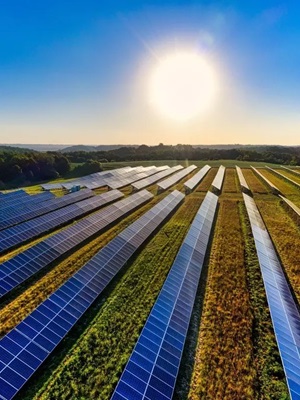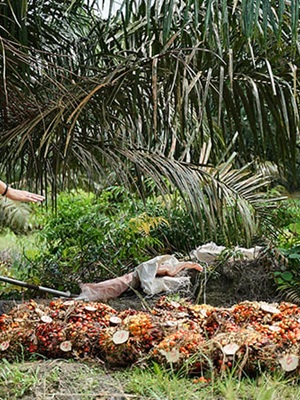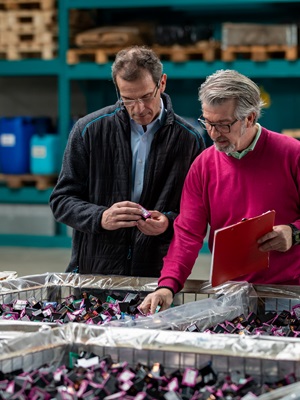The UN recently declared 2022 to be a year of unprecedented hunger. Fuelled by a pandemic, conflict in Europe and climate change, the global food crisis is worse than ever before.[1] At this critical juncture, we must approach food production in new and innovative ways.
One of these promising strategies begins with a humble fly.
The Green Revolution
In the 1960s, the Green Revolution changed the world. Widely considered one of the most important technological advances in the 20th century, the Haber-Bosch process made ammonia-based fertilisers cheap and readily available. Combined with advancements in pesticide and genetically modified crops, agriculture production soared. These inventions fuelled an explosion in human population and continue to feed almost all of us today.
To many of us, food scarcity is a problem that seems distant. We hear about it in far-flung areas ravaged by conflict and natural disaster. We may read about it in history books and scientific reports. However, when we go to supermarkets, we are often confronted with abundance. Shelves seem permanently stacked full and the variety of choice gives us a false sense of security.
In reality, the risks are closer than we think. Studies have repeatedly warned that our current intensive agricultural practices are unsustainable. Use of ammonia-based fertiliser is causing global disruption to the nitrogen cycle.[2] Pollution and over farming have led to billions of tons of lost topsoil and nearly one-third of the world’s arable land being lost in the last 40 years.[3]
At the same time, one-third of all food produced is lost or wasted, costing the global economy $936 billion annually.[4]
Franklin Roosevelt once said, “The nation that destroys its soil destroys itself” (1937). For our future, we must rethink the way we grow food.
Regenerative Agriculture—giving back to the Earth
Regenerative Agriculture is a way for us to do better by our planet and our people. It refers to a holistic approach to farming that gives back to the land and improves the environment. Rather than depleting the soil of nutrients and risk pollution, Regenerative agricultural practices keep it healthy. This is done by closing the nutrient loop, improving water retention, and decreasing carbon emissions.
More recently, Regenerative Agriculture has received significant attention from farmers, scientists and consumers. Governments and private investors are increasingly investing in Regenerative agricultural efforts for its potential to maintain healthy farmland and reduce the amount of carbon in our atmosphere.[5]
“We don’t have to wait for technological wizardry: regenerative organic agriculture can substantially mitigate climate change now,” – Rodale Institute.
Surprisingly, Regenerative Agriculture doesn’t rely on costly new technologies or radically different ideas. All it is is a more refined understanding of pre-industrial forms of cultivation that made use of good soil management. Combined with a better scientific understanding of soil, water and the natural ecosystem, crops grown with a regenerative agriculture system have been shown to outcompete conventional yields and are more resilient to adverse conditions.[6] The latter quality is something becoming increasingly important for our crops, given the rise in adverse weather conditions.
One of the ways humans have been practising Regenerative Agriculture throughout most of history is by using compost to enrich the soil. Compost is decomposing organic matter that plants can use to grow. In the process, they capture more carbon in the ground, and reduce the need for artificial fertilisers. This is where the black soldier fly enters the story.
The role of a Humble Fly
Big impact tends to come from the smallest changes. The Black Soldier Fly (BSF) offers an elegant, organic solution both to food waste and food shortage due to poor soil management.
The Black Soldier Fly is a peculiar insect. The adults do not have mouths. They do not sting, bite, or bother humans. The larvae of the fly, however, are voracious eaters. They devour and convert organic matter with a very high efficiency. At Insect Feed Technologies (IFT), we use BSF larvae to turn food waste into sustainable insect protein, reducing carbon emissions from food waste. The “waste” products from the larvae are known as insect frass, consisting of exoskeleton and excrement. This can be used as organic fertiliser for sustainable soil rejuvenation.
![black-soldier-fly-ift[1].jpg](/images/digitalhublibraries/articles-categories/eb9cef39-4d98-45fd-8ee4-b35914319c36.jpg?sfvrsn=a107a68d_2)
A black soldier fly
Historically, the role of compost has typically been filled with nightsoil, animal excrement or decomposing plant matter. This practice closes the nutrient loop, returning crucial minerals back into the soil and keeping the land fertile. Compared to typical compost, frass contains higher quantities of nitrogen, phosphorus, potassium and micronutrients — all of which are essential for sustainable soil management and healthy plant growth.
Studies on maize crop growth have found that Black Soldier Fly Frass perform better than commercial organic and inorganic fertilisers.[7]
Thus, utilising BSF frass not only addresses a major food waste problem but can also help to supplement traditional fertilisers in rejuvenating the earth. The BSF has a key part to play in the development of sustainable agriculture and a circular economy.
We are putting this to the test ourselves in Sarawak, Malaysia. As part of the Future Trees project, our BSF insect frass will support the growth of over 1,000,000 Paulownia trees and aid in greater carbon sequestration. The BSF in the area are also fed with palm oil waste, reducing landfill waste and carbon emissions while facilitating a zero-waste closed-loop system for the palm oil industry.
![ift-project036fd108-117d-4004-9f61-d0592f2194c6[1].jpg](/images/digitalhublibraries/articles-categories/b7a5de32-3324-4dc6-b236-a87e2af4287b.jpg?sfvrsn=582d0ed1_2)
The future trees project
We often underestimate the importance of little things. Tackling massive problems like food shortage and food waste does not always require completely new inventions. Sometimes the best solutions have already been provided for by Mother Nature. All we need to do is reframe the way we consider the problem and apply the wisdom of past generations to a modern context.
That is how we change the world. By making the most use of our “waste” and giving back to the earth, with the Black Soldier Fly.
[1] World Food Programme. “A Global Food Crisis: World Food Programme.” UN World Food Programme. UN. Accessed August 5, 2022. https://www.wfp.org/global-hunger-crisis.
[2] Kanter, David R., Fabio Bartolini, Susanna Kugelberg, Adrian Leip, Oene Oenema, and Aimable Uwizeye. "Nitrogen pollution policy beyond the farm." Nature Food 1, no. 1 (2020): 27-32.
[3] Cameron, D., C. Osborne, P. Horton, and M. Sinclair. "A sustainable model for intensive agriculture." Grantham Centre for Sustainable Futures 2 (2015).
[4] Merchant, Natalie. “The World's Food Waste Problem Is Bigger than Expected - Here's What We Can Do about It.” World Economic Forum. World Economic Forum, March 26, 2021. https://www.weforum.org/agenda/2021/03/global-food-waste-solutions/.
[5] “A Healthier Planet – Regenerative Agriculture.” General Mills. Accessed August 5, 2022. https://www.generalmills.com/how-we-make-it/healthier-planet/environmental-impact/regenerative-agriculture.[6] Rodale Institute. "Regenerative Organic Agriculture and Climate Change: A Down-to-Earth Solution to Global Warming." (2014).
[7] Beesigamukama, Dennis, Benson Mochoge, Nicholas K. Korir, Komi KM Fiaboe, Dorothy Nakimbugwe, Fathiya M. Khamis, Sevgan Subramanian et al. "Exploring black soldier fly frass as novel fertilizer for improved growth, yield, and nitrogen use efficiency of maize under field conditions." Frontiers in Plant Science 11 (2020): 574592.
Posted 01/02/2023
















